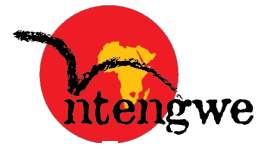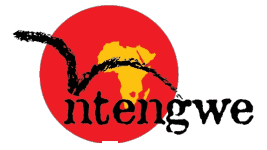Tools & Methods
In keeping with Ntengwe’s belief that everyone has a part to play in response to long-term, sustainable development, we have developed a range of practical and innovative tools designed for individuals and groups in support of meeting community-led local solutions.
These tools empower grassroots women, children, young people,and communities to build a grassroots movement for change, covering many different thematic areas including, but not limited to, gender justice, livelihoods, climate change, resilience, governance, and child protection.
Check out our field-friendly tools in:
- participatory data collection;
- local-to-local dialogue;
- peer exchange;
- community practitioner platforms.
TOOLS FOR PARTICIPATORY DATA COLLECTION
 Ntengwe undertakes community-based research to help stakeholders, communities, service providers and civil society to utilize the data in policy and development interventions.
Ntengwe undertakes community-based research to help stakeholders, communities, service providers and civil society to utilize the data in policy and development interventions.
The main methods and tools used include the use of mobile data collection apps that deal with data analysis and packaging mechanisms as well as web portals for data dissemination.
We promote community participatory and inclusive processes, making sure that community enumerators are included in the data collection, focus group discussions, data analysis, and dissemination procedures. Grassroots women leaders and representatives of Persons with Disabilities (PWDs) are trained to use tools such as the Gender Evaluation Criteria to assess the gender responsiveness of policies and actions.
We also apply a digital literacy campaign for women, children, and adults, especially people with disabilities, by creating tailor-made information communication sessions from which marginalized communities are taught about basic Information Communication Technologies (ICT) data collection, processing, and usage of the data.
The data is mainstreamed throughout the program processes so that information on access to health care, preventive and social protection, economic governance, local government processes, and policy and practice are continuously shared, including their utilization and benefits.
In partnership with GeoIntel we develop customized mobile or web-based data platforms that are linked with Ntengwe’s social media pages for lobbying and advocacy and interactive community engagement in line with the national Monitoring, Evaluation, and learning plan and program objectives.
LOCAL-TO-LOCAL DIALOGUE
 Local-to-local dialogues are a participatory methodology that involves grassroots organizations establishing ongoing communication between decision-makers and women in order to promote their empowerment and inclusivity in setting community priorities.
Local-to-local dialogues are a participatory methodology that involves grassroots organizations establishing ongoing communication between decision-makers and women in order to promote their empowerment and inclusivity in setting community priorities.
As part of our initiatives, we coordinate and facilitate local-to-local dialogue for women leaders in our communities to learn and exchange good practices, build their knowledge and develop advocacy strategies to dialogue with local government and to make changes in their local communities.
Our dialogues are a method of participatory development which are developed locally by grassroots organizations to promote women’s empowerment. They aim at establishing ongoing dialogues between marginalized women and local decision-making authorities. Through this process, women negotiate a range of development issues, priorities, plans, and programs in ways that enhance community participation and address women’s priorities.
Local-to-local dialogues combines women’s marginalization with social change and thus supports grassroots women in making an active and meaningful impact in the planning and decision-making processes on issues that affect their lives and families.
PEER EXCHANGE
 Ntengwe provides platforms for peer exchange for young people, women, and children to socially engage on a range of topics from service-learning, social and emotional learning, community platforms, and group workshops.
Ntengwe provides platforms for peer exchange for young people, women, and children to socially engage on a range of topics from service-learning, social and emotional learning, community platforms, and group workshops.
The peer exchanges are a learning tool that young people and grassroots women’s organizations have employed for many years to learn from the experiences of other groups. It usually consists of one community visiting another, seeking to experience how young people approach their work on child protection, resilience-building, or disaster risk reduction, and to share their perspectives on development.
Ntengwe’s approach to peer exchange draws on almost 20 years of experience in fostering support and companionship to empower young people, children, and women to share information. We focus on sustaining grassroots leadership in redeveloping families, homes, communities, and economies in crisis situations by promoting collaborative partnerships that strengthen and upscale grassroots local knowledge among young people, women, and children.
This has initiatives around topics of governance, community response and resilience, child protection, human rights, and peacebuilding.
We support five elements that are core for peer exchange:
- collective learning inside a host community which reflects the communities’ positive values and norms;
- participatory hands-on methods that encourage the participation of youth, women, and children in the learning;
- collective facilitation processes that are community-led and are structured around dialogue sessions in order to share experiences;
- support on co-learning interaction to share their learning and to support each other’s understanding;
- evaluation and dissemination, appraising the experience and creating a collective history together that serves for future experiences.
COMMUNITY PRACTITIONER PLATFORMS
 Ntengwe facilitates Community Practitioner Platforms (CPP), which is a multi-stakeholder platform that facilitates grassroots community groups faced with natural hazards, climate change, pandemics, deepening poverty and inequality, to advance common strategies and develop policies and collaborative initiatives that promote resilient development.
Ntengwe facilitates Community Practitioner Platforms (CPP), which is a multi-stakeholder platform that facilitates grassroots community groups faced with natural hazards, climate change, pandemics, deepening poverty and inequality, to advance common strategies and develop policies and collaborative initiatives that promote resilient development.
Access to justice for all is critical and is a basic principle of the rule of law. In the absence of access to justice, people are unable to have their voices heard, exercise their rights, challenge discrimination, or hold decision-makers accountable.
Grassroots women face barriers to obtaining justice in their capacities as claimants, victims, witnesses, or offenders, often driven by institutional, policy, and legislative failure to remove discrimination, gender bias, stereotyping, stigma, indifference, corruption, and impunity. Women who face multiple and intersecting forms of discrimination, as well as those affected by crises are often at the back end of justice service delivery.
Direct participation of people, especially women from low-income and disadvantaged communities is central to these efforts; yet it is widely recognized that support has not, for the most part, been successful in reaching poor people’s organizations. Indeed, most conventional approaches to community participation fail to build capacities or partnerships that can transform dominant models of development.
We support communities to design innovations and solutions that address development needs, reduce climate shocks, and disaster risks. These communities demonstrate that these problems are not insurmountable.
The Community Practitioner Platforms are working to strengthen community-specific processes of sustainable and resilient development. They are joining with others and providing leadership to collective action by their communities. They address challenges across justice systems more broadly, as well as within the key context areas of family and property rights; ending violence against women; and women in crises, with special reference to local-level programming.
The Community Practitioner Platforms include:
- grassroots women organizations, working on disaster and climate resilience, child protection, women’s land rights, and those who want to be part of a learning and advocacy network of peers;
- local and national government organizations, traditional leaders, bilateral and multilateral agencies with a strong commitment to engaging poor communities in government programs on DRR, social justice, climate change, and poverty reduction;
- civil society organizations or networks committed to facilitating the leadership of disaster-prone communities to learn and advocate for their resilience priorities.
Together, these platforms have for the past ten years, shared practices, lessons have been learned, and advocacy priorities identified. They have promoted collaboration between community leaders and local authorities, governments and other policy makers.
They have facilitated community-led actions that demonstrate the capacities of grassroots women and communities to undertake public leadership roles in resilience. And developed products that communicate the accomplishments, insights, and advocacy messages of the CPP.

